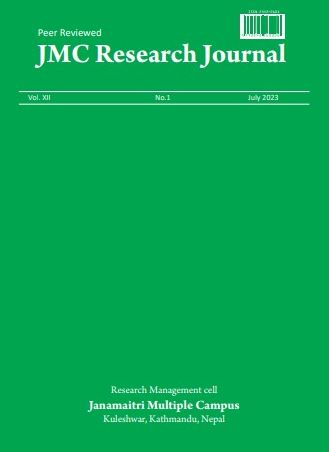Using Literary Texts in Teaching English as a Foreign Language
DOI:
https://doi.org/10.3126/jmcrj.v12i1.61629Keywords:
Literature, linguistic competence, communicative competence, intercultural awareness, pedagogyAbstract
The present study investigates the effectiveness of using literary texts in teaching English as a foreign language in Nepal. The objective of this study is to explore the multiple advantages of literary text in language teaching. Adopting a qualitative design, the study collected data from eight teachers from four private schools of Mahalaxmi Municipality of Lalitpur district of Kathmandu Valley. The data were obtained through semi-structured interviews and interaction with the teachers. After the interview and the Interaction, it was known that the literary texts were effective resources for teaching and learning English They have been used for various purposes such as comprehension questions, vocabulary, various aspects, skills, and levels of language. Moreover, the study also identified some challenges, such as students' lack of sufficient exposure to literary texts and their prior knowledge, limited time and resources, the need for teachers to develop appropriate pedagogical strategies, exam-oriented mentality of parents, students, and administrators should be changed. The study concludes that incorporating literary texts in EFL teaching in Nepal can be a valuable resource for enhancing students' language learning outcomes, developing communicative and linguistic competence, and fostering their creative and critical faculties as well as intercultural understanding. It is expected that the paper will be very useful for the concerned teachers, students, administrators, and parents.

